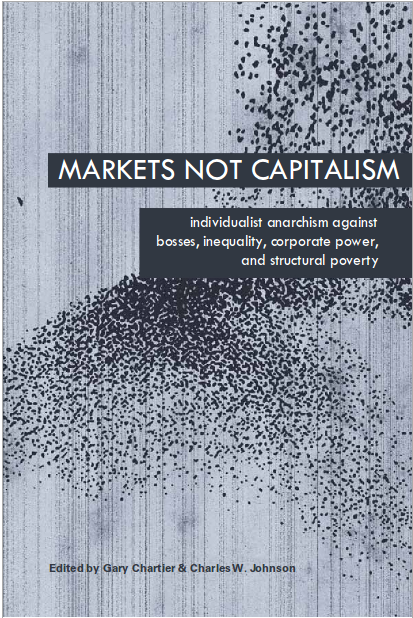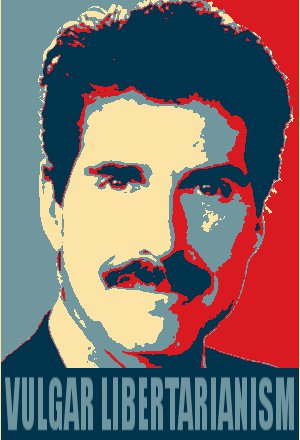… [I]f the New York subway system is basically a government monopoly, then simply leasing, selling, or transferring it from our local Transit Authority to a politically-vetted outside agency doesn't make it less of a monopoly per se. It's just the same system with a different face and attitude to hide its statist legacy. All that's changed is that the privatized option is supposedly run more efficiently.
Indeed, schemes like these are more about efficiency
than they are about reducing the state's presence and legacy.
So many problems arose with the Indiana deal championed by Stossel that even the local arm of the Indiana Libertarian Party opposed it. The contracts were for a 75-year lease in return for $3.8 billion to the government's coffers – pretty sweet deal, no? The bidding process wasn’t very transparent, nor did it even involve local community input as a courtesy. Ultimately the foreign firms that were awarded contracts by the Indiana government to take over and manage its toll highway are now profiting from an infrastructure put in place neither by their own free efforts nor on their own dime, but by the state. It's a de facto double charge to drivers, who have to pay high tolls to access the very infrastructure they financed through their exploited tax dollars in the first place. Is that so unlike the government taking away a family’s home via eminent domain, giving the land to a corporation like Wal-Mart, and then celebrating this criminal act as if it were a part of free enterprise?
Every market enterprise involves risks, costs, and profits. The market way is that all three aspects are privatized. . . . But Indiana ‘s privatization scheme involves privatizing the profits while passing on many of the original costs and risks to everyone else whether they like it or not. Governments aim to socialize all three factors — though here again it’s usually small cliques of the politically-connected who reap the most benefits at our unwitting expense. How utterly revealing! Why do so many privatization cheerleaders, however libertarian they may be otherwise, ignore that?
Because they want it both ways.
The appeal of public-private partnerships
is that they seem to be a win-win situation — capitalists are happy because they get to make profits through shifting day-to-day management from politicians to themselves; politicians are happy because they still have ultimate control and bargaining power, and can claim to cut waste and big government just in time for the election; customers are happy because the services become nominally more efficient and there’s no taxes or surly public servants involved. Yes, they look like market entities on the surface, and yet we can still have the aegis of the State in the background so as not to appear too radical for the Zogby polls. After all, we love capitalism, right?
The idea that you can somehow run government like a business and get the best of both worlds is absurd because the incentives and economic calculation just aren't there. Public-private partnerships reek of the Original Sin of state privilege, monopoly and exploitation, and they can never escape that legacy. Even the very language of privatization alienates so many people already that when libertarians talk about replacing government services with market-based ones, folks assume we're shilling for corrupt things like Halliburton or Blackwater or wimpy school vouchers. Instead of merely privatizing
the management of existing monopoly government infrastructure, let's focus on augmenting and replacing it outside the statist complex, through marketization.
We’ve never had a central state agency handling food production and distribution to all 300 million Americans. We have thousands of independent enterprises big and small that have evolved instead, and this works just fine even with state subsidies and agencies in the mix. This is marketization in essence. We certainly don’t need a monolithic Food Agency to develop, and then evolve into an equally monolithic public-private
partnership, because it would be no more effective than the decentralized market structure that currently feeds us.
So I propose to Indiana (and New York for that matter): Instead of just transferring a government-run highway into the hands of some politically-connected firm in a sweetheart deal, why not simply permit firms to build and run their own independent (privately built and owned) highways, subways, schools, hospitals, and taxi/limousine services to supplement and replace the existing statist monopolies? Or better, ignore the state and do it anyway?
— Marcel Votlucka, Strike the Root (2009-03-27): Don’t Privatize, Marketize! Boldface is mine.


